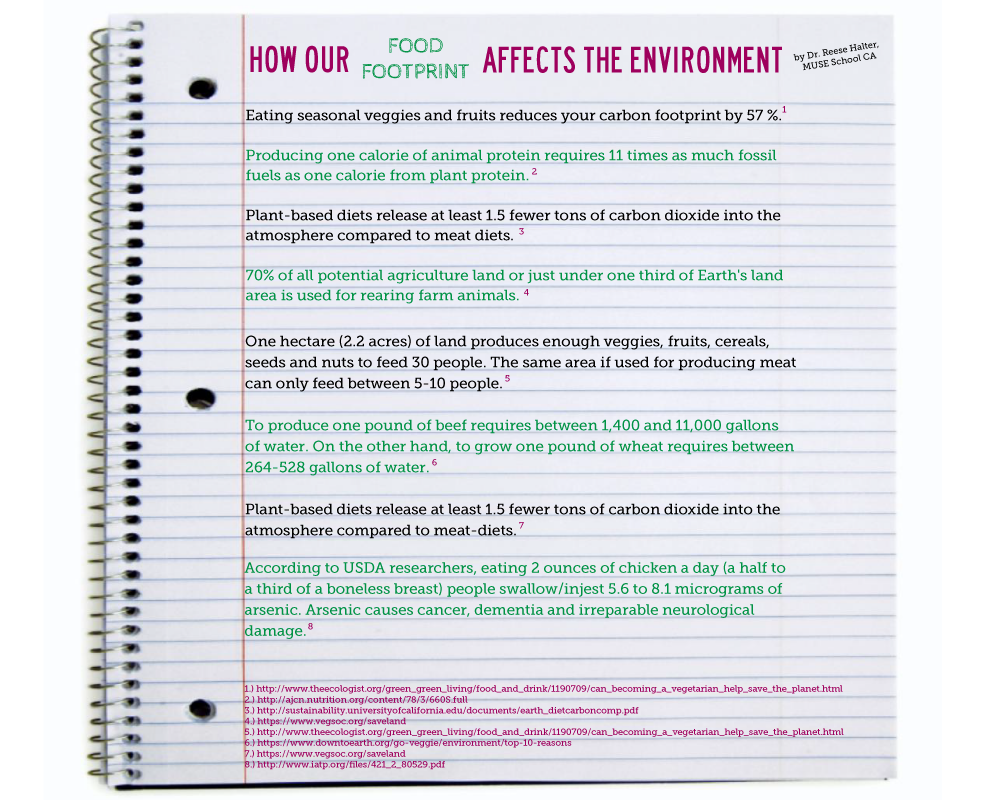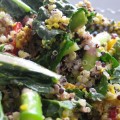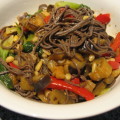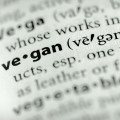MUSE School CA is a private school in Calabasas founded by Suzy Amis Cameron, wife of Oscar Winning Filmmaker James Cameron, and her sister Rebecca Amis. If you are looking for a better education for your children, look no further. MUSE combines academics, problem solving, and critical thought with a focus on positive environmental impact. Students become practitioners of sustainable living to benefit our global future. The Three Cornerstones of MUSE—food, energy and water—are supported by OMD (One plant based Meal a Day) for the Planet. Let’s explore how it all comes together.
I went on a field trip to visit MUSE School’s inspiring middle and high school campuses. While parking my hybrid car, I noticed a man working high above the ground on a climbing wall wearing a safety harness. Then I was greeted by Dr. Reese Halter, Chairman of the Science Department. We sat in the summer shade overlooking their amazing numerous new and mature garden filled raised beds. OMD for the Planet means that the children eat one plant based meal during the day at MUSE, and I wanted to know how that one meal would make a planetary difference. The answer is it significantly reduces our carbon footprint.
A carbon footprint is defined as the greenhouse gas emissions caused by an organization, event, product or person. More than academics, MUSE School also teaches students specific simple things they can do to reduce their global footprint.
“On a per person basis we are saving a half a ton of heat-trapping greenhouse gases in 9 months with our OMD,” according to Dr. Reese Halter.
Dr. Reese said, “In order for us to have energy for commerce and all of our widgets (as I sat there like a nerd with my cell phone and laptop in hand), we have to have energy. Energy is very real. How we live on planet Earth is based on food, energy and water. It’s all connected and we all need to help the next generation of future leaders, makers and entrepreneurs connect the dots. Now we are burning up our energy and the greenhouse gases created trap heat, and our global ice is melting.”
Back to school!
 Here is how it’s all connected. The school has a Seed-To-Table program explained lyrically to me by Jeff King, Head of School. We sat at this beautiful sturdy wooden table and he explained, “Plant, nurture, grow, harvest, prep, consume, compost. MUSE has 120 raised beds on 2 campuses and that saves planet earth 12 tons of Carbon Dioxide. Every student at our school is responsible for a research project regarding the conservation of food, energy or water. MUSE school produces 30-40% of all the food that they consume and 100% of the lettuce.”
Here is how it’s all connected. The school has a Seed-To-Table program explained lyrically to me by Jeff King, Head of School. We sat at this beautiful sturdy wooden table and he explained, “Plant, nurture, grow, harvest, prep, consume, compost. MUSE has 120 raised beds on 2 campuses and that saves planet earth 12 tons of Carbon Dioxide. Every student at our school is responsible for a research project regarding the conservation of food, energy or water. MUSE school produces 30-40% of all the food that they consume and 100% of the lettuce.”
“MUSES’s OMD is saving Earth’s atmosphere 99.5 tons of heat-trapping greenhouse gases over 36 weeks or one school year. That’s the equivalent of taking 25 cars off the road for one year or 300,000 miles of emissions,” Dr. Halter states.
I garden with raised beds, I compost and I have a worm farm in my yard. We laughed about how it’s not as simple as tossing a corn cob into a hole and growing a tree. Learning how to do these things right is such a valuable education. I was excited to learn that the kids are taught to compost their own lunch, and while their lunch can be an abundant delicious farm to table experience, they also have the responsibility to weigh how much food they are wasting.
 Seed-to-Table not only includes teaching children how food is grown, but also understanding there is a commerce side. Their raised beds grow so much local organic produce that they are able to sell some of it. MUSE has relationships with local restaurants that purchase produce from the school delivered to them via carbon free delivery.
Seed-to-Table not only includes teaching children how food is grown, but also understanding there is a commerce side. Their raised beds grow so much local organic produce that they are able to sell some of it. MUSE has relationships with local restaurants that purchase produce from the school delivered to them via carbon free delivery.
The school is a role model for positive environmental impact. “The school does a complete audit of food, energy and water and sets goals to reduce by a % each year. Teaching the kids and role modeling for the parents,” Jeff King.
What about academics?
Jeff King states, “Core academics are laid out in academic milestones and all the children are at or above California standards. MUSE high school students are well prepared to enter any higher academic setting that they choose. We are a passion based school mirrored after the big picture schools. Students all have individual learning plans and all their academics are taught through their passion. They achieve a higher level of engagement and academic progress because they are learning their academics through their passion.”
“Students are exposed to a multitude of passions, and they will interact with all ages so they can be exposed to other students’ passions. In this way young students will be able to tell you what they want to be and who they want to be in the world, while maintaining a high level of excellence.”
Maker space
Remember that guy hanging from the climbing wall? Well apparently he was building it! That is local Chip Duggan, MUSE’s on-campus expert Maker. Remember that awesome wooden table we were sitting around? He made that table too! Dr. Reese added regarding Maker Space, “To help children understand that we have to have a lighter footprint, students have to be creative. They have to think and learn how to make things from their hands and from their imagination.” Isn’t that so much better than being glued to a monitor or television?
Of course, the kids built all of those raised beds in the photo!
Let’s get back to talking about the food!
 “Campus food is all local, all organic and all freshly prepared; dye free, pesticide free, and toxin free. MUSE School has a head chef and sous chef that prepare food for the students in their certified GREEN restaurant and all food allergies can be accommodated.”
“Campus food is all local, all organic and all freshly prepared; dye free, pesticide free, and toxin free. MUSE School has a head chef and sous chef that prepare food for the students in their certified GREEN restaurant and all food allergies can be accommodated.”
What an accomplishment to be growing your own lunch while you are working on your studies. OMD, One Meal a Day for the Planet, is only one plant based meal (and snacks) during school day hours. I am a big supporter of the benefits of a plant based diet and the miracles that phytochemicals can bring into our lives.
According to Jeff King, “MUSE did lose potential students due to fear of children not getting enough protein, and a fear of the unknown and fear of change. MUSE views change as opportunity in disguise. MUSE is ever-evolving. When we get information and data, it’s reviewed and considered.”
MUSE has successfully combined academics with an engaging kid-focused positive environment. We all want future generations to be prepared and create a better life on a thriving planet. Being better requires change. Improvement happens with positive change. If we want children to have choices and a healthy planet rich with biodiversity, we can learn from MUSE School’s example how to achieve our goals while integrating knowledge and a passion for the future. By upgrading to just One Meal a Day for the Planet, students can learn responsibility, analytics, commerce, creativity, ecology and these connections will benefit their future, our future and the future of our planet.
Helpful links:
MUSE School CA
Dr. Reese Halter, Chairman of the Science Department, MUSE School CA
Around the web:
MUSE on Ellen








No Comments